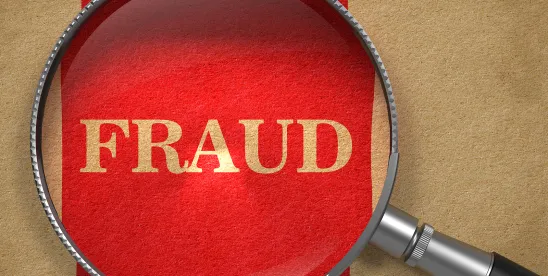During the first quarter of 2025, the U.S. Department of Justice (DOJ) announced a number of False Claims Act (FCA) settlements and judgements, many of which resolved qui tam lawsuits filed by whistleblowers. The settlements and judgements showcase the variety of frauds which the government is pursuing and which False Claims Act whistleblowers can report.
Under the False Claims Act’s qui tam provisions, whistleblowers can file a qui tam lawsuit alleging violations of the FCA on behalf of the government, which then has the option to intervene and take over the lawsuit. Regardless of whether the government intervenes, whistleblowers whose qui tam suits result in successful cases are eligible to receive between 15-30% of the funds collected in the case.
The types of fraud targeted in settlements and judgments announced in the first quarter of 2025 include Medicare Part C fraud, cybersecurity fraud, illegal kickbacks and defense contract fraud.
In a keynote address at the Federal Bar Association’s annual qui tam conference in February, Deputy Assistant Attorney General Michael Granston promised that moving forward the Department of Justice “plans to continue to aggressively enforce the False Claims Act.”
$62 Million Settlement Over Medicare Part C Fraud Allegations
On March 26, the DOJ announced that Seoul Medical Group Inc., its subsidiary and majority owner, and Renaissance Imaging Medical Associates Inc., a radiology group that worked with Seoul Medical, agreed to pay a total of $62 million to resolve False Claims Act allegations relating to the submission of false diagnosis codes for two spinal conditions to increase payments from the Medicare Advantage program (Medicare Part C).
According to the DOJ, Seoul Medical and its owner “submitted diagnoses for two severe spinal conditions, spinal enthesopathy and sacroiliitis, for patients who did not suffer from either of these conditions” and “enlisted the assistance of Renaissance Imaging Medical Associates to create radiology reports that appeared to support the spinal enthesopathy diagnosis.”
These diagnoses allegedly led to the increased payment to Seoul Medical under Medicare Part C.
“Medicare Advantage is a vital program for our seniors and the government expects healthcare providers who participate in the program to provide truthful and accurate information,” said Acting Assistant Attorney General Yaakov M. Roth of the Justice Department’s Civil Division. “Today’s result sends a clear message to the Medicare Advantage community that the United States will zealously pursue appropriate action against those who knowingly submit false claims for taxpayer funds.”
The settlement resolved a qui tam whistleblower suit filed by Paul Pew, the former Vice President and Chief Financial Officer of Advanced Medical Management. Pew’s share of the recovery had not been determined at the time of the settlement.
$4.6 Million Settlement Over Cybersecurity Fraud Allegations
On March 26, the DOJ also announced a $4.6 million settlement MORSECORP Inc. resolving allegations that MORES violated the FCA by failing to comply with cybersecurity requirements in its contracts with the Departments of the Army and Air Force.
According to the DOJ, MORSE “submitted false or fraudulent claims for payment on contracts with the Departments of the Army and Air Force” and “those claims were false or fraudulent because Morse knew it had not complied with those contracts’ cybersecurity requirements.”
Among other things, the DOJ accused MORSE of “use[ing] a third-party company to host MORSE’s emails without requiring and ensuring that the third party met security requirements equivalent to the Federal Risk and Authorization Management Program Moderate baseline and complied with the Department of Defense’s requirements for cyber incident reporting, malicious software, media preservation and protection, access to additional information and equipment necessary for forensic analysis and cyber incident damage assessment.”
“Federal contractors must fulfill their obligations to protect sensitive government information from cyber threats,” said U.S. Attorney Leah B. Foley for the District of Massachusetts. “We will continue to hold contractors to their commitments to follow cybersecurity standards to ensure that federal agencies and taxpayers get what they paid for, and make sure that contractors who follow the rules are not at a competitive disadvantage.”
The settlement stemmed from a qui tam lawsuit filed by a whistleblower who is set to receive an $851,000 share of the settlement amount.
$15 Million Settlement Over Defense Contract Fraud Allegations
On April 1, the DOJ announced that DRI Relays Inc. agreed to pay $15.7 million to resolve allegations that it violated the FCA by supplying military parts that did not meet military specifications.
According to the DOJ, “between 2015 and 2021, under various Department of Defense (DoD) contracts and subcontracts, DRI invoiced for military grade electrical relays and sockets when it knew those parts had not met the testing requirements to be deemed military grade.”
“It is essential to the safety and operational readiness of our military that contractors comply with applicable military specifications,” said Acting Assistant Attorney General Yaakov M. Roth of the Justice Department’s Civil Division. “We will continue to hold accountable those who knowingly supply equipment to the U.S. military that fails to meet their contract obligations.”
$1.9 Million Settlement Over Kickback Allegations
On March 6, the DOJ announced that a group of health care providers and laboratory marketers agreed to pay a total of $1.9 million to resolve FCA allegations arising from their involvement in laboratory kickback schemes.
According to the DOJ, “health care providers received kickbacks in return for their referrals to a laboratory in Anderson, South Carolina” and “a marketer and his marketing company received kickbacks from that South Carolina laboratory to arrange for laboratory testing referrals.”
For example, according to the DOJ, one doctor and his medical practices “agreed to pay $400,000 to resolve allegations that from May 2016 to November 2021, they received thousands of dollars in remuneration disguised as purported office space rental and phlebotomy payments from the South Carolina laboratory in return for ordering testing.”
These alleged kickbacks were in violation of the Anti-Kickback Statute.
“Integrity must be the standard in our health care system,” said Acting U.S. Attorney Brook B. Andrews for the District of South Carolina. “Kickback schemes divert funds and focus away from patients and their medical needs.”
Conclusion
As these settlements show, the False Claims Act remains America’s number one anti-fraud law, covering a wide range of fraud affecting the federal government. Since 1986, the FCA has allowed the government to recover over $78 billion, with more than $55 billion stemming from qui tam whistleblower lawsuits.
Individuals looking to file a qui tam lawsuit alleging False Claims Act violations should consult an experienced whistleblower attorney.
Geoff Schweller also contributed to this article.




 />i
/>i
